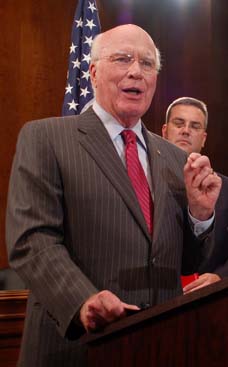
Before joining HRA, Gainer's career encompassed a range of public health projects and academic tenures. After her PhD in epidemiology at the University of Paris XI, she returned to the US to work as a research associate at the Institute for Genomic Research in Rockville, Maryland, USA. She followed that with a two-year assignment in Zimbabwe with the US Peace Corps. Subsequently, there were roles as an epidemiologist at the Johns Hopkins University School of Public health and as a risk analyst at the US Department of Agriculture. Her public health credentials and international experience brought Erin to the attention of Ulmann at HRA. In 2000, he recruited her to manage the product development of its new chemical entity, ulipristal acetate, a new generation of emergency contraception that is about to reach the market as ellaOne. (Prior to that, Ulmann had been working alone or with consultants.) However, at that time, Gainer had no desire to work in a traditional pharma setting. "I don't imagine I would have set out for a career in the industry," she says. "But HRA, with its involvement in women's health and its socially conscious approach, was attractive to me."
Zimbabwe RPCV Dr Erin Gainer appointed CEO of HRA Pharma
Profile: Erin Gainer
Aug 18, 2009
HRA Pharma (Paris, France) was founded by André Ulmann in 1996 to target niche sectors. With the launch of NorLevo in 1999, the company moved into emergency contraception, a therapeutic area in which it has thrived ever since. In November last year it opened its first subsidiary in Bochum, Germany, and last month expanded into the UK, opening an office in London.
Earlier this year, Ulmann stepped aside as CEO after 13 years and handed the company reins to HRA's executive director of research and development, the US-born Dr Erin Gainer. Ulmann assumed the role of chairman of the supervisory board, while Gainer took charge of navigating the company's next moves. With the concentrated period of European expansion set to continue, it's an exciting time to be at the helm.
A HEALTHCARE JOURNEY
Before joining HRA, Gainer's career encompassed a range of public health projects and academic tenures. After her PhD in epidemiology at the University of Paris XI, she returned to the US to work as a research associate at the Institute for Genomic Research in Rockville, Maryland, USA. She followed that with a two-year assignment in Zimbabwe with the US Peace Corps. Subsequently, there were roles as an epidemiologist at the Johns Hopkins University School of Public health and as a risk analyst at the US Department of Agriculture. Her public health credentials and international experience brought Erin to the attention of Ulmann at HRA. In 2000, he recruited her to manage the product development of its new chemical entity, ulipristal acetate, a new generation of emergency contraception that is about to reach the market as ellaOne. (Prior to that, Ulmann had been working alone or with consultants.)
However, at that time, Gainer had no desire to work in a traditional pharma setting. "I don't imagine I would have set out for a career in the industry," she says. "But HRA, with its involvement in women's health and its socially conscious approach, was attractive to me."
And she "grew to love the whole business." Since joining, Gainer has defined and managed the company's global R&D programme and led cross-disciplinary project teams in preclinical and clinical development, regulatory affairs and marketing. In 2007 she became a member of its board, before assuming the CEO role in April this year.
Nevertheless, HRA's social consciousness and commitment to answering unmet medical needs, especially with regard to women's health, is key to sustaining Gainer's motivation during her nine years with the company. "I personally believe that HRA is doing things that are important for public health in general. We're developing products and services that respond to true needs, and we're trying to think of creative ways to make them available throughout the world," she says. "And we extend this creative approach to identifying what the needs might be and finding new solutions. That is clearly a source of motivation." (HRA's programmes in developing countries have included the 2006 'Mona Lisa Afrique' initiative to provide intra-uterine devices free of charge to several West African countries.)
But, echoing Novartis's comments earlier this year about the 'danger' of donating vaccines, Gainer emphasises that a socially conscious company cannot afford simply to target poor patient populations with free treatments. "To some extent, our vision is not to be a company focusing on philanthropy or donating drugs; when we work on socially conscious projects, we try and put into place sustainable models. Sometimes we will donate an initial supply of drugs and then make them available at cost, but the idea is to create a sustainable model by which we can make our products available to the developing world."
ROOTS IN EUROPE
The developing world projects continue apace, but one of Gainer's key areas of focus for the immediate future is Europe.
"So far we've been marketing our own drugs in France but licensing them out elsewhere in Europe," she says. But with the approval and impending launch of ellaOne, it makes sense for the company to further establish operational presence elsewhere in Europe, "given that emergency contraception is really a market that we've created.
HRA is targeting the five major European markets - France, UK, Germany, Spain and Italy - for operational expansion. The German and UK subsidiaries have opened during the last 12 months; Italy and Spain are now in the company's sights. Says Gainer: "We also have a robust pipeline of products coming down the line - both in women's health and orphan diseases - and feel that investing right now in an operational presence will make clear sense as we bring our new drugs to market over the next several years."
The company's growth over the last decade has already been very impressive. Since becoming profitable (almost immediately) in 2000, sales exceeded EUR 10 million by 2003, EUR 20 million by 2005 and last year were up to EUR 33 million. Gainer expects the company to keep up this growth, explaining: "We've really tried to take a sustainable approach to what we're doing, and develop new drugs at the same time as launching current ones. But there's always a growth then a plateau investment phase, which is what we've tended to see historically."
For Gainer, the decade at HRA has presented great opportunities for advancement, culminating in her appointment as CEO. In the meantime she has become affiliated with the European Society of Contraception, the Healthcare Businesswomen's Association and has recently completed her Executive MBA at INSEAD.
But does this increasingly corporate focus ever grate on someone so close to the science, whose public health and academic experience remained very much outside the boardroom? "We're very much a science-driven organisation. I think that's one reason André Ulmann chose me as his successor," explains Gainer. "I don't micro-manage our R&D teams, but I keep a close eye on that side of the business and am highly involved in our product development, committees and thinking of new ideas and bringing on new projects. I think that's part of the added value I can bring as a CEO."













